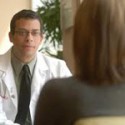Survey shows 3.4 million children live with binge drinking parents
More than three million children live in households where at least one of the parents is a binge drinker, a shock survey showed last night.
The figure is three times as many as previously thought, according to the study by a charity.
The National Addiction Centre also found that one million are living with at least one parent who abuses drugs.
In one of the most comprehensive studies of its kind, the researchers combined the results of five reports into Britain’s drinking habits.
They used the Government’s definition of a binge drinker – someone who regularly drinks more than twice the daily recommended alcohol limits or three units for a woman and four for a man.
It means a mother is defined as a binger if she regularly consumes more than six units a night, while a father has to knock back eight. One unit is equal to half a pint of beer, a shot of spirit or a small glass of wine.
They estimate that around 3.4 million children share a home with at least one ‘binge drinking’ parent.
The report also found that 2.6 million children lived with a hazardous drinker, defined as being dependent on drink.
Report author Dr Victoria Manning, of the National Addiction Centre, said: ‘In order to meet the needs of both parental substance misusers and their children, we first need to understand the true nature and scale of the problem.
‘Without knowing the number of potentially at-risk families, we are unable to assist them until they come to the attention of agencies at crisis point.
‘Whilst actual harm from parental substance misuse is not inevitable, only large scale and far-reaching initiatives will likely impact on the 3.4 million children living with binge drinkers and almost one million living with drug users, where the potential for harm exists.’
The research, published in the journal BMC Public Health, concludes that substance misuse is much worse than previously thought.
Usual estimates were that there are 780,000 to 1.3 million children with problem drinkers in the UK.
The study, funded by Action on Addiction and the Wates Foundation, focused on all the information collected about parenting and substance use in a number of previous surveys.
Dr Manning said: ‘In order to meet the needs of both parental substance misusers and their children we first need to understand the true nature and scale of the problem.
‘Without knowing the number of potentially at-risk families we are unable to assist them until they come to the attention of agencies at crisis point.
‘Whilst harm from parental substance use is not inevitable, we need to raise awareness of how recreational substance use, and in particular binge episodes, can affect parenting capacity.
‘Substance use affects our judgement, emotions and how we respond to situations. Parental substance misuse can lead to inadequate child monitoring, modelling behaviour and poor standards of child care.’
The researchers call for social services to do more to support vulnerable families by improving access to treatment, family interventions and parenting skills training to minimise the risk of harm.
Dr Manning said: ‘Whilst harm from parental substance use is not inevitable, the number of children living with substance misusing parents exceeds earlier estimates.
‘Widespread patterns of binge drinking and recreational drug use may expose children to sub-optimal care and substance-using role models. Estimating the number of children living with parental substance misusers and in particular those who warrant professional intervention poses several challenges.’
source: Mail Online

